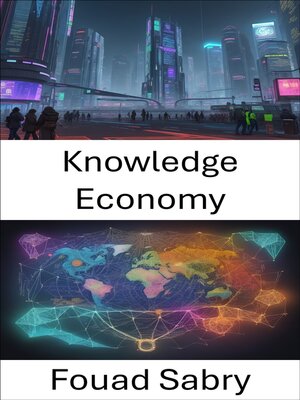Knowledge Economy
ebook ∣ The Knowledge Economy, Navigating the Future of Innovation and Growth · Economic Science
By Fouad Sabry

Sign up to save your library
With an OverDrive account, you can save your favorite libraries for at-a-glance information about availability. Find out more about OverDrive accounts.
Find this title in Libby, the library reading app by OverDrive.



Search for a digital library with this title
Title found at these libraries:
| Library Name | Distance |
|---|---|
| Loading... |
What is Knowledge Economy
The knowledge economy, or knowledge-based economy, is an economic system in which the production of goods and services is based principally on knowledge-intensive activities that contribute to advancement in technical and scientific innovation. The key element of value is the greater dependence on human capital and intellectual property as the source of innovative ideas, information and practices. Organisations are required to capitalise on this "knowledge" in their production to stimulate and deepen the business development process. There is less reliance on physical input and natural resources. A knowledge-based economy relies on the crucial role of intangible assets within the organisations' settings in facilitating modern economic growth.
How you will benefit
(I) Insights, and validations about the following topics:
Chapter 1: Knowledge economy
Chapter 2: Human capital
Chapter 3: Creative destruction
Chapter 4: Information society
Chapter 5: Productivity
Chapter 6: Knowledge worker
Chapter 7: Information revolution
Chapter 8: Post-capitalism
Chapter 9: Business cluster
Chapter 10: Deskilling
Chapter 11: Innovation economics
Chapter 12: Informatization
Chapter 13: Entrepreneurship
Chapter 14: Knowledge Economic Index
Chapter 15: Technology and society
Chapter 16: Knowledge society
Chapter 17: Creative economy (economic system)
Chapter 18: Clusters of Innovation
Chapter 19: TVET (technical and vocational education and training)
Chapter 20: Triple helix model of innovation
Chapter 21: Digital agriculture
(II) Answering the public top questions about knowledge economy.
(III) Real world examples for the usage of knowledge economy in many fields.
Who this book is for
Professionals, undergraduate and graduate students, enthusiasts, hobbyists, and those who want to go beyond basic knowledge or information for any kind of Knowledge Economy.







